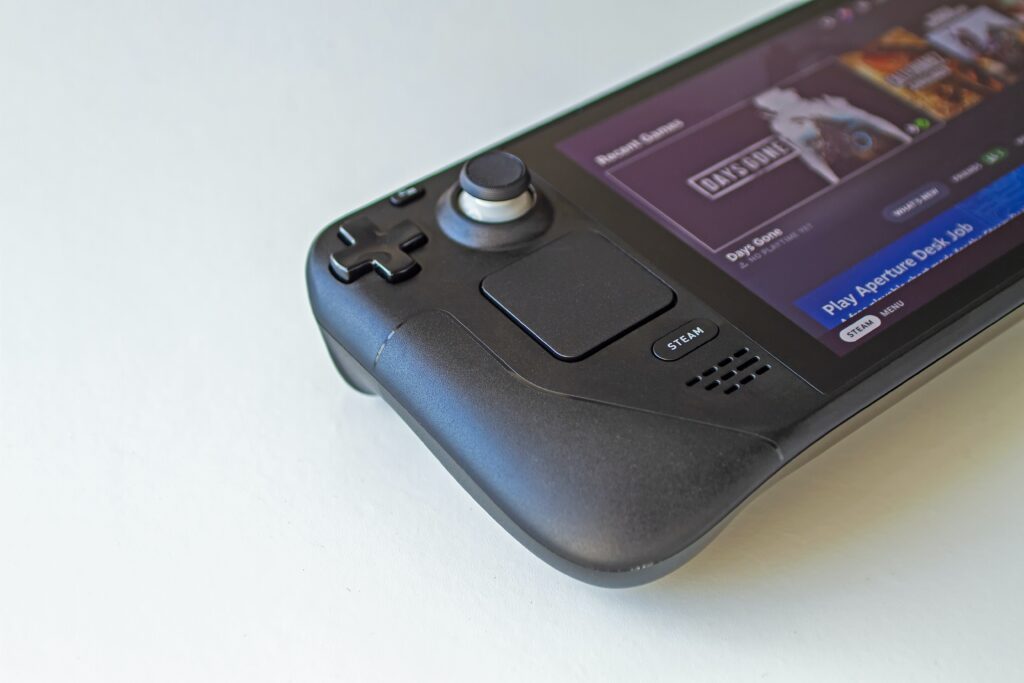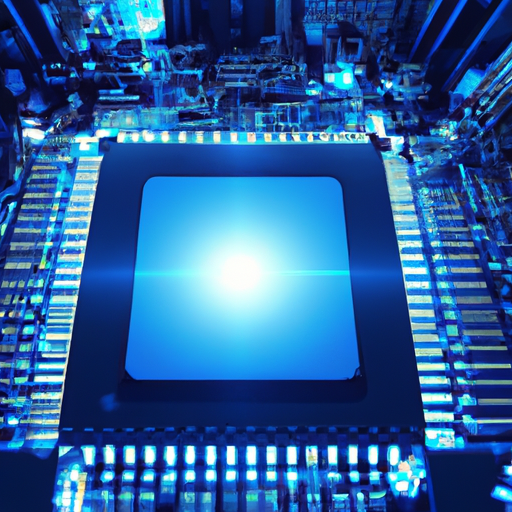How Does The CPU Affect Gaming Performance? 10 Powerful Possibilities to Consider
How Does The CPU Affect Gaming Performance: Introduction
The Central Question
“How Does The CPU Affect Gaming Performance?” This question often lingers in the minds of gamers, especially those keen on optimizing their gameplay. Understanding the role of the CPU in your gaming system is pivotal, and this article aims to answer that all-important question in great detail.
Importance of the CPU
The central processing unit, or CPU, is not just a component of your computer; it’s the ‘brain’ that controls almost every operation. In the realm of gaming, it holds a role of critical significance, affecting everything from frame rates to load times. Whether it’s rendering a complex 3D environment or managing multiple tasks simultaneously, the CPU is at the heart of the action.
Who Should Care?
Whether you’re a casual gamer who enjoys a few rounds of your favorite game over the weekend or a hardcore gaming enthusiast who lives for high frame rates and detailed graphics, understanding the CPU’s influence is crucial. The CPU’s performance has a direct correlation with your gaming experience, influencing how immersive and enjoyable a game can be.
Why Understanding Matters
Understanding the impact of a CPU on gaming isn’t just about nerding out on tech specs. It’s about making informed choices. Whether you’re upgrading your current gaming rig or building a new one from scratch, the type of CPU you choose can either elevate or hamper your gaming experience.
The Journey Ahead
So let’s navigate the complex yet fascinating world of CPUs and gaming. From technical specifications like clock speed, number of cores, and architecture, to practical considerations like cooling and power consumption, we will dissect every aspect that contributes to your gaming performance. Prepare to uncover the hidden intricacies of CPUs and their role in making your gaming adventures extraordinary.
How Does The CPU Affect Gaming Performance: CPU and Gaming Performance
What is a CPU?
The CPU, or Central Processing Unit, is an essential component of a computer that performs most of the calculations and instructions necessary for the computer to function. It is often referred to as the brain of the computer. In the context of gaming, the CPU plays a crucial role in determining the overall performance and experience of the game.
Importance of CPU in gaming
The CPU is responsible for handling a wide range of tasks while gaming, including game physics calculations, artificial intelligence, and game logic. It is also responsible for managing the data flow between different components of the computer, such as the graphics card and memory. A powerful CPU can handle these tasks efficiently, leading to smoother gameplay, faster load times, and better overall gaming experience.
Factors that impact gaming performance
When it comes to gaming, there are several factors that can impact the performance of a CPU. These factors include clock speed, number of cores, cache, architecture, and power consumption. Let’s dive into each of these factors in more detail to understand their significance in gaming performance.
How Does The CPU Affect Gaming Performance: CPU Specifications
Clock Speed
Clock speed refers to the number of cycles the CPU can execute per second, measured in GHz (gigahertz). A higher clock speed generally means that the CPU can process instructions faster, resulting in better gaming performance. However, it is important to note that clock speed alone does not determine the overall performance, as other factors such as the number of cores also come into play.
Number of Cores
The number of cores in a CPU determines how many tasks it can handle simultaneously. Each core is capable of executing instructions independently, which allows for parallel processing. In gaming, having more cores can help distribute the workload and improve multitasking capabilities. Most modern CPUs now come with multiple cores, ranging from dual-core to octa-core, with some even surpassing that number.
Cache
The cache is a small but incredibly fast memory built into the CPU, which stores frequently accessed data. It acts as a buffer between the CPU and the main system memory, providing faster access to critical information. A larger cache size can lead to improved performance during gaming, as it minimizes the time spent waiting for data to be retrieved from the main memory.
Architecture
The architecture of a CPU refers to its internal design and the way it handles instructions and data. Different CPU architectures can have varying levels of efficiency and performance. For example, Intel uses x86 architecture, while AMD uses x86 and x86-64 architectures. The architecture of the CPU can have a significant impact on gaming performance, with certain architectures being better suited for specific tasks or game engines.
Power Consumption
Power consumption is an important consideration when selecting a CPU for gaming. CPUs that consume excessive power can generate more heat, which may require additional cooling solutions. Gaming CPUs often require high power to deliver top performance, but balancing power consumption with thermal management is crucial to prevent overheating and ensure long-term stability.
How Does The CPU Affect Gaming Performance: CPU Bottleneck
Definition of bottleneck
A bottleneck occurs when a specific component in a computer system restricts the overall performance of the system. In the context of gaming, a CPU bottleneck happens when the CPU becomes the limiting factor in delivering the desired gaming performance. This can be due to the CPU being unable to keep up with the demands of the game, resulting in lower frame rates, stuttering, or overall decreased performance.
Causes of CPU bottleneck
There are several causes that can lead to a CPU bottleneck during gaming. One common cause is having a CPU that is less powerful or not optimized for the demanding requirements of the game. In some cases, the CPU may not have enough cores or cache to handle the workload efficiently, resulting in a bottleneck. Other factors, such as outdated drivers, background processes, or insufficient RAM, can also contribute to a CPU bottleneck.
Impact on gaming performance
A CPU bottleneck can have a significant impact on gaming performance. It can lead to lower frame rates, longer loading times, and decreased overall responsiveness of the game. The gameplay may feel sluggish and less smooth, diminishing the immersive experience. In some cases, severe CPU bottlenecks can even cause game crashes or freezing, making it impossible to play the game.
How to identify CPU bottleneck
Identifying a CPU bottleneck can be done through monitoring and benchmarking tools. These tools can provide real-time data on CPU usage, clock speed, and other performance metrics while gaming. If the CPU usage consistently stays close to or reaches its maximum capacity while other components are not fully utilized, it is a good indication of a CPU bottleneck. Additionally, analyzing frame rates, input lag, and overall system responsiveness can also help identify CPU bottlenecks.
How Does The CPU Affect Gaming Performance: GPU vs CPU
Difference between GPU and CPU
The GPU, or Graphics Processing Unit, is another crucial component in gaming, responsible for rendering graphics, textures, and visual effects. While the CPU handles general calculations and game logic, the GPU is specifically designed to handle complex graphical computations. Both the GPU and CPU work together to deliver the gaming experience, but they have different strengths and functions.
GPU vs CPU in gaming
In gaming, the GPU plays a more prominent role in terms of performance. It is primarily responsible for generating and rendering the visuals, including textures, lighting, shadows, and particle effects. The CPU, on the other hand, handles the game logic, physics calculations, and AI. While both are important, a more powerful GPU can have a bigger impact on gaming performance, especially in graphically intensive games.
Tasks performed by GPU
The GPU excels at processing large amounts of data in parallel, making it ideal for handling graphics-intensive tasks. It performs tasks such as vertex processing, rasterization, and pixel shading, all of which are critical for rendering high-quality visuals. The GPU also handles tasks like anti-aliasing, texture mapping, and post-processing effects, further enhancing the visual fidelity in games.
Tasks performed by CPU
The CPU, as the general-purpose processor, takes care of various tasks beyond graphics. It handles game logic, physics simulation, AI calculations, and manages the overall flow of data between different components in the system. While these tasks may not directly impact the visuals, they play a vital role in delivering a smooth and immersive gaming experience.

How Does The CPU Affect Gaming Performance: Overclocking and Gaming
What is overclocking?
Overclocking refers to the practice of increasing the clock speed and potentially other parameters of a CPU or GPU beyond its rated specifications. This is done to extract extra performance from the component, pushing it beyond its default limits. Overclocking can be achieved through the motherboard’s BIOS settings or dedicated software utilities.
Effects of overclocking on gaming performance
Overclocking can have a noticeable impact on gaming performance, especially if the CPU is a limiting factor in the system. By increasing the clock speed, the CPU can process instructions faster, leading to improved frame rates and overall responsiveness in games. However, overclocking can also increase power consumption and heat generation, which may require better cooling solutions to maintain stability.
Considerations for overclocking
Before attempting to overclock a CPU, it is important to consider a few factors. Firstly, not all CPUs are created equal, and the overclocking potential can vary from one chip to another. It is essential to research the specific CPU model and understand its limitations and recommended voltage ranges for overclocking. Additionally, overclocking can void warranties, and there is always a risk of damaging the CPU if not done properly. Therefore, it is crucial to follow safe overclocking practices and monitor temperatures closely.
How Does The CPU Affect Gaming Performance: CPU Cooling
Importance of CPU cooling for gaming
Proper CPU cooling is essential for maintaining optimal performance and longevity, especially during gaming sessions that put a heavy load on the CPU. When the CPU operates at high clock speeds, it generates a significant amount of heat. Inadequate cooling can result in thermal throttling, where the CPU reduces its performance to prevent overheating, leading to decreased gaming performance and potential stability issues.
Types of CPU cooling
There are several types of CPU cooling solutions available, ranging from air coolers to liquid cooling systems. Air coolers use heatsinks and fans to dissipate heat, while liquid cooling systems rely on liquid coolant circulating through tubes and a radiator to dissipate heat. Both types have their advantages and drawbacks, and the choice depends on factors such as budget, preference, and the cooling requirements of the CPU.
Effects of inadequate cooling
Insufficient cooling can lead to various issues that negatively impact gaming performance. When the CPU temperature rises, it can result in thermal throttling, where the CPU automatically lowers its clock speed to reduce heat production. This can lead to decreased frame rates, longer loading times, and overall reduced gaming performance. In extreme cases, overheating can cause system instability and even permanent damage to the CPU.

How Does The CPU Affect Gaming Performance: CPU and Game Requirements
Minimum and recommended CPU requirements
Game developers often specify minimum and recommended CPU requirements for their games. The minimum requirements represent the minimum level of CPU performance needed to run the game, while the recommended requirements represent the optimal level of CPU performance for a smooth gaming experience. Meeting or exceeding the recommended requirements ensures better performance, higher frame rates, and improved game responsiveness.
How CPU Affects Game Compatibility
The CPU plays a crucial role in determining the compatibility of a game with a specific system. If the CPU does not meet the minimum requirements, there is a high chance the game will not run or will run poorly. The CPU’s capabilities, such as clock speed, number of cores, and cache size, directly impact its ability to handle the game’s demands and calculations. It is essential to check the game’s system requirements and compare them to your CPU’s specifications before purchasing and playing.
Game optimization for different CPUs
Game developers often optimize their games to run efficiently on a variety of CPUs. Optimization techniques can include utilizing multiple cores, optimizing code for specific CPU architectures, and implementing low-level optimizations. However, not all games are equally optimized for all CPUs, and some games may perform better on specific architectures or with certain CPU configurations. It is worth researching a game’s optimization and performance on your specific CPU before purchasing.
How Does The CPU Affect Gaming Performance: Upgrading the CPU
When to upgrade the CPU
Upgrading the CPU can be a significant investment, so it is important to consider the timing carefully. There are several signs that indicate it may be time for a CPU upgrade. If your current CPU is consistently unable to meet the minimum requirements of the latest games or struggles with delivering acceptable frame rates, it may be a good time to consider an upgrade. Additionally, if your CPU lacks the necessary cores, cache, or architecture for your desired gaming experience, an upgrade can greatly improve performance.
Factors to consider before upgrading
Before upgrading the CPU, it is essential to consider other factors that may impact gaming performance. These factors include the compatibility of the new CPU with the existing motherboard, power supply requirements, and potential need for additional cooling. It is also worth researching the performance gain you can expect from the upgrade and comparing it to the cost of the new CPU. In some cases, upgrading other components such as the GPU or adding more RAM may provide a more noticeable improvement in gaming performance.
Impact of CPU upgrade on gaming performance
Upgrading the CPU can have a significant impact on gaming performance, especially if the existing CPU was a bottleneck. A more powerful CPU with higher clock speeds, more cores, or a larger cache can handle the demands of modern games better, resulting in smoother gameplay, improved frame rates, and reduced load times. However, the actual improvement in gaming performance will vary depending on the specific CPU and the gaming workload.

How Does The CPU Affect Gaming Performance: Future Trends
Rise of multi-threaded games
The gaming industry is moving towards utilizing multiple CPU cores more efficiently with the rise of multi-threaded games. In the past, most games were primarily optimized for single-threaded performance, as CPUs with faster clock speeds were more prevalent. However, with the increasing availability of CPUs with multiple cores, game developers are leveraging multi-threading to distribute the workload across cores more evenly. This trend is expected to continue, and games in the future will likely benefit from CPUs with higher core counts.
Advancements in CPU technology
CPU technology continues to advance, with each new generation offering improvements in performance, efficiency, and capabilities. Manufacturers are constantly pushing the boundaries of clock speeds, increasing core counts, and refining architectures to deliver better gaming performance. Advancements in CPU technology often translate to improved gaming experiences, faster load times, and enhanced AI and physics simulations. Gamers can look forward to CPUs that are more powerful and better optimized for gaming.
Potential impact on gaming performance
With advancements in CPU technology and the rise of multi-threaded games, the potential impact on gaming performance is significant. CPUs with higher core counts and improved architectures can handle complex gaming workloads more efficiently, resulting in higher frame rates, smoother gameplay, and enhanced visual effects. This progress also enables game developers to create more immersive and realistic experiences, pushing the boundaries of gaming technology.
How Does The CPU Affect Gaming Performance: Conclusion
The Central Role of the CPU
In conclusion, the CPU serves as the backbone of your gaming setup, acting as the central processing unit that executes the game’s code and interacts with all other hardware components. Its importance in gaming performance cannot be understated, as it dictates how well a game runs, from frame rates to load times.
Multi-faceted Contributions
When evaluating a CPU for gaming, it’s not just about the clock speed. Multiple factors such as the number of cores, cache size, and architecture also weigh in significantly. Each of these attributes contributes to various aspects of gaming, be it multitasking, quick data access, or efficient instruction execution.
The Importance of Smoother Gameplay
A powerful CPU translates to smoother gameplay. It can process more calculations per second, resulting in higher frame rates and less lag. This is especially beneficial in fast-paced games where split-second decisions can make or break your gameplay experience.
Addressing Bottlenecks
It’s crucial to identify and address CPU bottlenecks in your system to get the most out of your gaming experience. A bottleneck occurs when the CPU can’t keep up with the other hardware, making them idle and thereby reducing overall system performance. Factors like cooling solutions and compatibility with your other hardware components also play a role in alleviating bottlenecks.
Looking Ahead
With the rapid advancements in CPU technology and the ever-evolving demands of modern video games, staying up-to-date with your CPU can make a significant difference. Future-proofing your system by considering potential upgrades or opting for a high-end CPU can offer a more enduring and fulfilling gaming experience.
Final Thoughts
Overall, choosing the right CPU and maintaining its performance is a balancing act that involves several variables. Being mindful of the different factors that contribute to its effectiveness will not only enhance your gaming experience but also extend the longevity of your gaming setup. As games continue to push the boundaries of what’s possible in virtual worlds, your CPU remains a critical piece of the puzzle in ensuring that you enjoy those worlds to the fullest.





